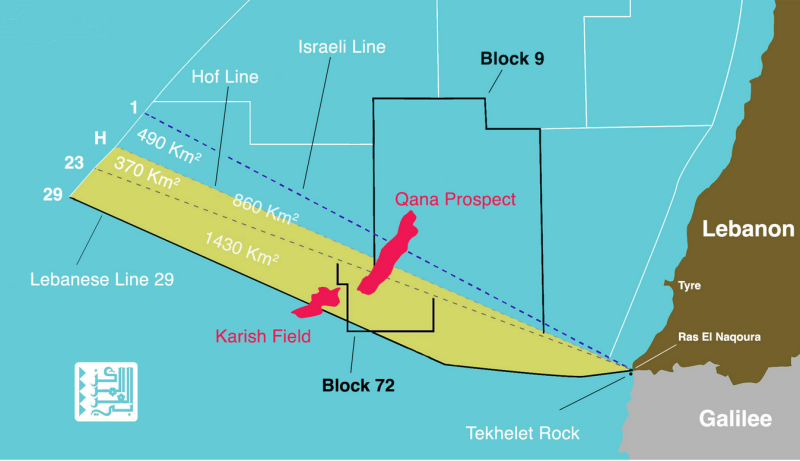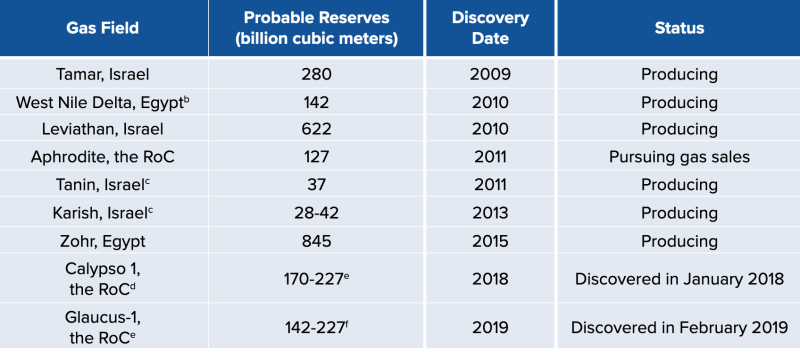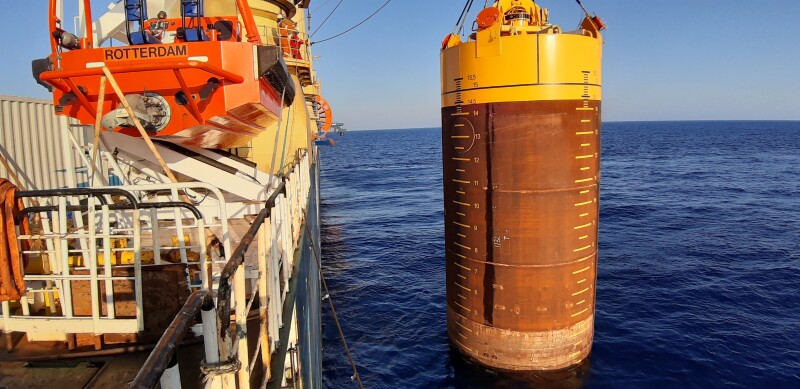Israel and Lebanon have agreed to end a long-running dispute over maritime borders. The agreement will enable gas production at Israel’s Karish field to proceed free of security concerns, while ensuring Lebanon’s control of gas exploration in its defined sector of the Eastern Mediterranean.
Though an official signing date has yet to be set, Lebanon’s deputy speaker, Elias Bou Saab, said the US-brokered deal satisfied both sides. “Lebanon has obtained its full rights, and all of its remarks have been taken into account,” Al Jazeera quoted Bou Saab as saying.
Israeli National Security Adviser Eyal Hulata, who headed the Israeli negotiating team, echoed his Lebanese counterpart’s remarks, issuing a statement that “all our demands were met, the changes that we asked for were corrected. We protected Israel’s security interests and are on our way to an historic agreement.”
Lebanon’s interim President Michel Aoun (who leaves office on 31 October) announced Beirut’s acceptance of the deal, which Israel’s cabinet also approved and sent to the Knesset (parliament) for a 2-week review before a final cabinet vote ahead of Israel’s 1 November elections.
Novatek Exits TotalEnergies, Eni Partnership
The deal places Karish in Israeli waters while guaranteeing Lebanon’s right to fully control the Qana prospect where Blocks 4 and 9 in 1400 to 1800 m of water were licensed for exploration in 2017 to a consortium led by TotalEnergies (40%) in partnership with Eni (40%) and Russia’s Novatek (20%).
Israel will share in Qana’s revenues (given that the border line splits the field), but TotalEnergies will act as middleman, working exclusively with Lebanon as regards control of Qana while managing financial relations with Israel to avoid any direct partnership relations between the two nations that have been at war since 1982.
Meanwhile, Qatar’s Oil Minister Saad Sherida al-Kaabi expressed the emirate’s interest in taking over Novatek’s 20% interest after the Russian LNG producer’s subsidiary, Novatek Lebanon SAL, informed Lebanese authorities it would exit the consortium when the initial 5-year exploration period ends on 22 October 2022, Walid Fayyad, Lebanon’s Minister of Energy and Water, told Lebanon’s National News Agency.
Although the only exploration well drilled so far in Lebanese waters (on Block 4 in 2020) turned up dry, data analyzed so far suggest that Block 9 may be different. TotalEnergies had planned appraisal drilling at Block 9 this year but hesitated because of the border issue. However, as news of the agreement broke in October, Lebanese authorities were meeting with representatives of TotalEnergies in Beirut to greenlight a resumption of activity and an extension of the 5-year license agreement.
A 2015 study of Lebanon’s fossil fuel resources pegged potential oil reserves from 440 to 670 million bbl and gas reserves in the range of 12–25 Tcf based on data from seismic surveys completed earlier by France’s Beicip Franlab and the Norwegian multiclient geophysical data provider Spectrum which was acquired by TGS-NOPEC Geophysical in 2019.
Those reserves represent a 20-year supply of electricity for Lebanon, Fayyad pointed out in commenting on the economic benefits of settling the boundary dispute.

Of the various border lines debated since 2011, the US-brokered agreement centers on Line 23, which places the Karish gas field in Israeli waters and offers both sides access to the Qana gas field. Source: Arab Center Washington DC, adapted from maps released by the Lebanese Armed Forces.
Energean Hits the Gas on Karish Production
In June, the UK-Israeli-listed E&P independent Energean began a 3- to 4-month hookup and commissioning process leading up to first gas at Karish after the company’s 8 Bcm/year FPSO, Energean Power, arrived in Israeli waters via the Suez Canal from Sembcorp Marine’s Admiralty Yard in Singapore.
Energean tweeted on 9 October that it had begun flow testing from onshore to the FPSO after having received approval from Israel’s Ministry of Energy. Energean Power is the only FPSO operating in the EastMed, according to Energean.
Israel has become a major gas-producing country in recent years thanks to the startup of the Tamar and Leviathan fields, with output reaching almost 20 Bcm in 2021, according to Energy Ministry data.

Major gas reserves confirmed in the Eastern Mediterranean reveal Israel, Egypt, and Cyprus as the dominant players so far. Source: Atlantic Council Issue Brief: Energy and Geopolitics in the Eastern Mediterranean, February 2022.
As Karish is being primed for a “first gas” announcement, Energean is pressing forward with its 2022 appraisal drilling campaign. On 6 October the independent announced a commercial discovery of between 7 and 15 Bcm in recoverable natural gas resources at the Hermes exploration well in Israel’s offshore Block 31 southeast of the Karish field.
The Hermes discovery helps de-risk the Poseidon and Orpheus structures nearby which could be included in future appraisal drilling to fully assess Block 31.
The Stena IceMax drilling rig has now moved to Block 12 to drill the Zeus structure estimated to hold 10–12 Bcm of gross prospective unrisked gas resources in the A/B/C sands. Data obtained would help refine estimates of unrisked recoverable resources in the Olympus area between the Karish and Tanin fields that currently stand at 58 Bcm.
Energean has also exercised its option to drill a sixth well with Stena Drilling Limited as part of the current drilling campaign. This well is expected to target the Hercules prospect, located on Block 23 in Israeli waters.
Rush to Market Before the EU Closes Its Doors to Gas
In mid-June, Israel and Egypt signed a MOU with the European Union aimed at liquefying Israeli and Egyptian gas at facilities in Egypt and delivering LNG to EU member states. While Europe is currently keen to sign up any potential gas supplier that isn’t Russia, EU leaders are also making it clear to potential partners that their appetite for gas will not extend past 2030 when Europe plans to have weaned itself off fossil fuels.
Nevertheless, Egypt and Israel could benefit over the next 8 years from not only LNG sales but also an EU pledge in one clause of the MOU to accelerate implementation of new gas sales by encouraging European companies to bid in competitive processes and invest in projects to explore and produce natural gas in Israel and in Egypt which can supply Asian markets via the Suez Canal well past 2030.


